Jack Ma: The man behind Alibaba
- Published
The man behind Alibaba: Jack Ma
I first met Jack Ma, founder of the Alibaba Group, at a technology conference shortly after arriving in Beijing in 2002.
He immediately stood out among the young, energetic English speakers heading China's scrappy internet start-ups.
His company, which back then matched Chinese factories to customers abroad who wanted to buy their products, was based in Hangzhou, a city in eastern China better known for its picturesque scenery than for the quality of its engineers.
He also had no Western educational pedigree, having studied at a teacher's college in his hometown after failing the national university entrance exam - not once but twice.
With his enthusiasm and an extremely direct way of speaking, he is a larger-than-life character.
After all, not many chief executives would dress up in leather, a Mohican wig, put on lipstick and a nose ring and sing Elton John's Can you Feel the Love Tonight? to their employees.
But that was exactly what he did to celebrate the company's 10th anniversary in 2009.
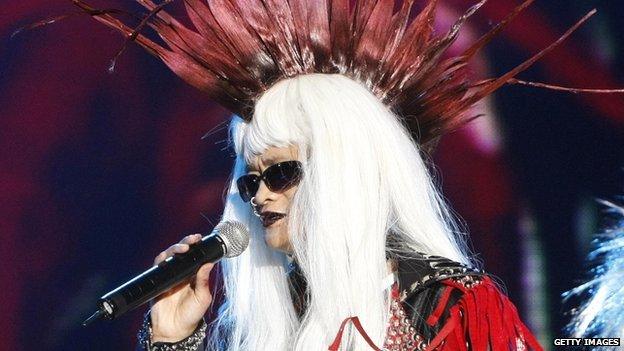
Not your average company boss - Jack Ma in full flow
Digging for treasure
Unusually for someone who had never lived outside China, he spoke fluent, even colloquial English.
When I asked him about his language skills he laughed, and said he picked up the language by giving free tours of Hangzhou's West Lake to foreign tourists.
In those days, Jack was just as generous about giving his time to reporters.
He wrote his mobile phone number on his business card and always took calls personally.
I rang him on a sweltering Friday in July 2003 when Alibaba announced it was entering a brand new market - online shopping.
Two months earlier it had launched a site called Taobao, which means "digging for treasure".
The site provided a platform for buyers and sellers to meet online and trade with each other.
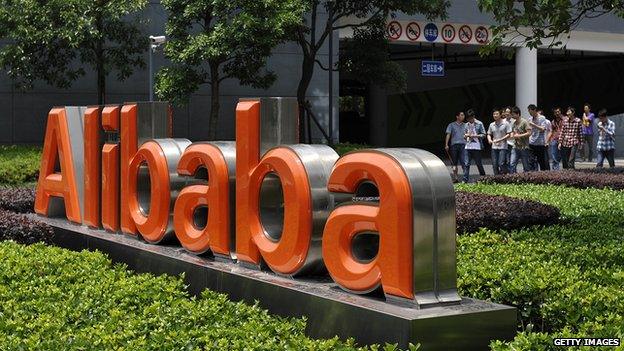
Last year, Alibaba sold goods worth more than $240bn
Homegrown company
To me, the business model sounded exactly like the established online auctioneer eBay, which had been pouring hundreds of millions of dollars into building its China market.
Alibaba would invest just $12m (£7.1m) which would probably keep Taobao running for about three years.
Jack said he welcomed eBay's challenge, even though he seemed hopelessly outgunned.
But his was an entirely homegrown company, and used local knowledge to its advantage.
Rather than charge for listings, Taobao offered them for free, and still does. Unlike eBay, which advertised on the internet, Taobao advertised on television, which had a much bigger audience.
In its early days, it managed to win over a specific audience - female office workers in their early to mid-twenties who like to shop for cosmetics and lingerie. They still form the backbone of its business.
The site did so well that three years later, by the end of 2006, eBay decided to close its China operations.
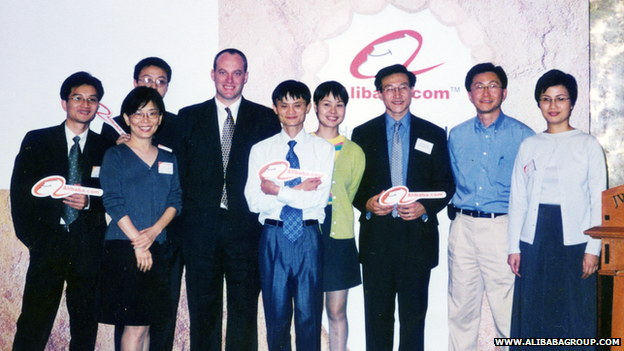
The Alibaba.com official launch ceremony in 1999
International fame
Since then, Taobao has become the jewel in the crown of Alibaba's internet empire and is now China's largest shopping website.
Taobao and its sister site Tmall handle more merchandise than eBay and Amazon combined.
As for Jack, his defeat of eBay has made him a national celebrity.
While in January he stepped down as chief executive, handing over to longstanding Alibaba employee Jonathan Lu Zhaoxi, he remains chairman and the company's effective boss.
He is also now China's richest man, according to the Bloomberg Billionaires Index, with a net worth of more than $21bn (£13bn), external, which is not bad for a company started in 1999 with $60,000 raised from around 80 friends.
As for Alibaba, its current valuations vary between $150bn and $250bn, and its initial public offering (IPO) in New York - one of the biggest technology listings ever seen - means that Jack Ma is set to become internationally famous.
- Published14 September 2014
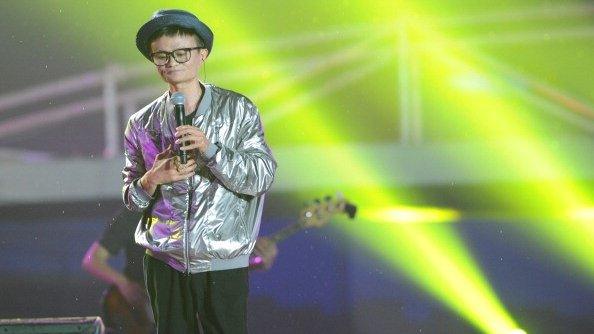
- Published18 September 2014
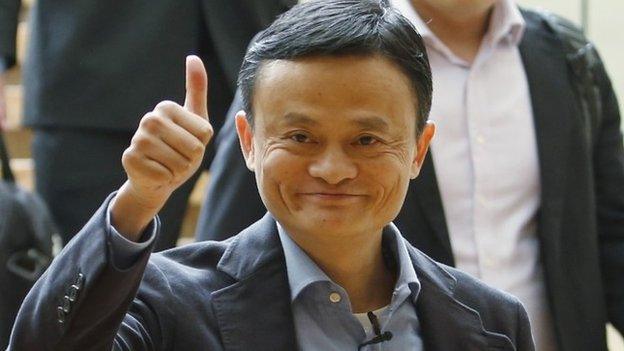
- Published8 September 2014
- Published6 September 2014